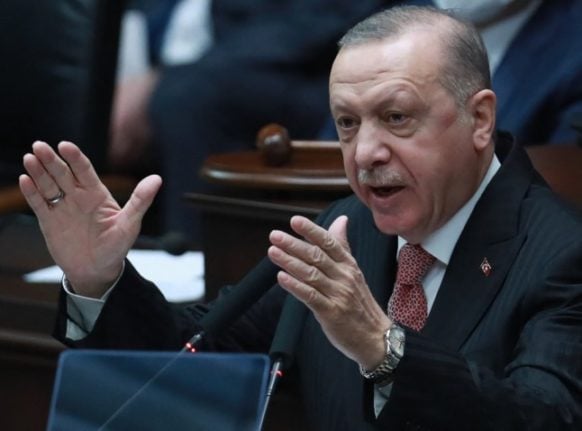“It is the way the have stifled it which is surprising – how they have refused to comment on it – just like Turkey did for a good 95 years,“ Vahagn Avedian, spokesperson for the Union of Armenian Associations in Sweden told the Local.
The motion to recognize the genocide of Armenians and other ethnic groups – Chaldeans, Syrians, Assyrians and Pontian Greeks – was passed in the Riksdag in March last year.
Though it had the backing of members of five of the seven Swedish parliamentary parties, the vote’s outcome was uncertain until the very last minute as the Parliamentary Committee on Foreign Affairs had recommended a rejection.
The government was against, and both Prime Minister Fredrik Reinfeldt and foreign minister Carl Bildt had dissociated themselves from the motion.
“We think it is a mistake to politicise history,” Bildt wrote on his personal blog at the time.
But with four centre-right politicians choosing to vote with the opposition, the resolution was eventually passed in March last year, by a single vote.
Turkey immediately elected to recall its ambassador to Sweden, Zergün Korutürk.
Two weeks later she was back in Sweden.
Before her departure from Turkey, she told reporters in Ankara that her return became possible only after the Swedish government distanced itself from the parliament’s decision.
“The Swedish government has clearly said that the decision would not be put into practice,” Korutürk was quoted by the Anatolia news agency as saying.
A year later, it does seem as if the Swedish government has done little to implement the Riksdag’s decision. According to SR, the Riksdag were recently informed that ‘the question is under preparation’.
The government’s failure to act has drawn criticism from both the opposition and from within their own parties.
“They have put the request at the bottom of a drawer and probably thrown away the key as well. When the Riksdag makes this kind of decision and urges the government to act, I think that it is reasonable to expect them to do so, “ Fredrik Malm, spokesman on foreign policy for the Liberal Party, told Sveriges Radio (SR).
“I think that it is fairly provoking that we have a foreign minister who isn’t popularly elected who chooses to openly ignore and work against a decision taken by us, the people’s representatives,” Hans Linde, Green party MP, said to SR.
Last year, Armenians in Sweden were jubilant over the Riksdag’s decision. Today, the joy has turned somewhat sour.
“Everyone I have spoken to – not just Armenians but other ethnic groups too- is very disappointed,” Avedian told The Local.
Although a similar outcome had been expected, no one thought that it would go this far.
“Despite all the talk of human rights, freedom of speech and solidarity, it all comes down to power politics in the end,” Avedian told The Local.


 Please whitelist us to continue reading.
Please whitelist us to continue reading.
Member comments